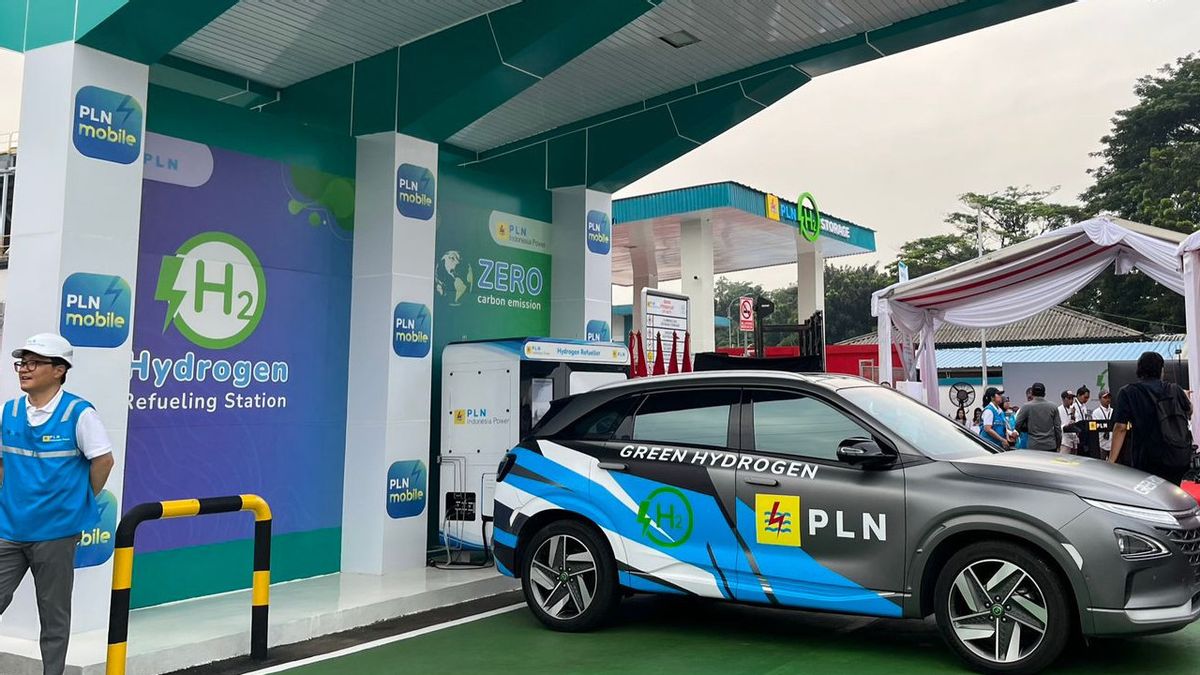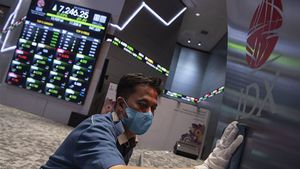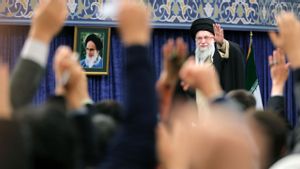JAKARTA - Expert Researcher at the Center for Energy Conversion and Conservation Research at the National Research and Innovation Agency (BRIN), Eniya Listiani Dewi revealed that PT PLN (Persero)'s Hydrogen gas station will only operate commercially in 2027.
Just so you know, PLN inaugurated the Hydrogen Refueling Station (HRS) or the first hydrogen vehicle charging station in Indonesia located in Senayan, Jakarta on Wednesday, February 21.
Eniya explained that the hydrogen gas station is still a pilot project for testing the use of hydrogen as an alternative fuel to replace fuel. Later the trial is planned to last for 3 years from the time it was first inaugurated.
"We present HRS, first for pilot projects, second for education, then to be commercialized. The plan to be commercialized is 2027, so the trial is 3 years," said Eniya to the media quoted on Thursday, February 22.
The trial, said Eniya, includes the smooth running of PLN in transporting hydrogen from Muara Karang to Senayan, which is the location of the first Hydrogen gas station.
After being inaugurated, Eniya explained that this gas station will also start a hydrogen filling test on the bus which is planned to be carried out in August 2024. After the bus, the trial will continue on the car in October in the same year.
"Next, until August (2024) there will be a demonstration of buses because our HRS match with bus pressure. Only around October is the passenger car. So the bus first, it is reproduced, so people know/aware about this, that the hydrogen is the most non-emissionable. From this plan we have prepared," explained Eniya.
Eniya also explained that the Minister of Industry Regulation which projects that there will be approximately 3,000 units of hydrogen-fueled vehicles by 2030. Meanwhile, the National Energy Council (DEN) proposes that in 2035 there will be 245,000 trucks.
SEE ALSO:
"It's a truck. We're adjusting to the DEN, for example not only trucks, but also buses, maybe to the ship which was also said by Mrs. Vivi (Bappenas). The direction is there. 2030 is expected (price) the hydrogen is quite low. Now it's low, Rp. 270 per km. But the capex (car) is expensive," continued Eniya.
Regarding the capex for cars, Eniya explained that the car engine from the automotive industry will later be in the form of a generator. Then cars with hydrogen fuel cells like Toyota's will increase their demand so that they can reduce the price of cars per unit.
"Capex cars (fuel cell hydrogen) now averages Rp900 million to Rp1 billion. Want to be reduced to separo, so that it is more affordable. The hydrogen is also cheaper," concluded Eniya.
The English, Chinese, Japanese, Arabic, and French versions are automatically generated by the AI. So there may still be inaccuracies in translating, please always see Indonesian as our main language. (system supported by DigitalSiber.id)











